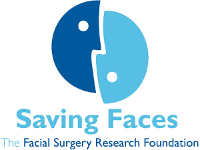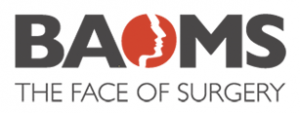| Title | A multicentre randomised controlled trial of a preoperative smoking cessation intervention practicable in routine surgical care | |
| Acronym | SKIP | |
| Study Type | Prospective Randomised Controlled Trial | |
| Status | In development | |
| Funding | TBC | |
Background
Smokers who have surgery suffer from more complications than non-smokers. Smoking increases the risk of infection, slows down wound healing and can cause breathing problems. Giving up smoking before surgery results in fewer complications. This means less time in hospital and a quicker recovery, which is good for patients and the NHS.
Patients who receive stop-smoking help in hospital with a month or more of follow-up support are more likely to quit than those who receive usual care. Smoking cessation medications further increase the success rate. Less data are available specifically for patients awaiting surgery. The National Institute for Health Research has asked researchers to design studies that will test different interventions to see what works best in this setting.
Aims
We propose to compare the current optimal usual care, which consists of referring smokers to a local stop smoking service, with an intervention delivered by surgical nurses which uses approaches known to be effective in other settings and which places minimal demands on staff and patient time.
Interventions
Patients in the usual care group will receive standard smoking cessation advice from the surgeon and a leaflet from the nurse/counsellor with stop-smoking advice and contact details for a local stop-smoking service. This is the most cost-effective way to help patients quit because it requires almost no time or effort from the surgical team. For any other approach to be considered, it has to demonstrate a significant advantage over this type of optimal routine care.
Intervention group patients will receive stop-smoking help from a counsellor, consisting of several components. The counsellor will explain briefly the health benefits of quitting before surgery, provide advice on quitting and on overcoming difficulties (cognitive-behavioural intervention), explain two stop-smoking medications (nicotine replacement treatment and Champix®) and provide a prescription for one of them if the patient wants a medication. Counsellors will call patients with further advice and support three times before surgery and once 2 weeks after surgery. Patients in both groups will receive face-to-face support on the day of surgery.
Although it has several components, the intervention is designed to avoid additional hospital visits for the patient and to take only a modest amount of the nurse’s and the patient’s time, so that if effective, it could be used across the NHS without incurring substantial costs or requiring substantial changes to current practice.
We will study 500 patients who are awaiting non-emergency operations provided routinely and often within the NHS. Approximately 350 will be awaiting wisdom teeth extraction or surgery to confirm the diagnosis of non-cancerous mouth lesions. The other 150 will be awaiting a variety of operations. A computer will choose whether patients who have agreed to take part in the study will have usual care or the intervention.
Outcomes
To establish which intervention is more effective, we will look at the number of patients who have quit smoking altogether at the time of surgery and again 4 weeks after surgery. We will also look at surgical complications in patients who did and did not stop smoking, and also at the costs of delivering both interventions as part of routine care. Patients’ reactions to both interventions will be monitored, i.e. adherence to advice, how they rate the care they received and whether they would recommend it to others. The project has been designed by a team of experts in smoking cessation, surgery, and clinical research.
Chief Investigator: Professor Peter Saseini – Director, Bart’s CTU
Principal Investigators:
Jeremy Anscherl – Queen’s Hospital, Romford
Chris Bridle – Whipps Cross Hospital, Leytonstone
Chi-Hwa Chan – Luton & Dunstable NHS Trust
Leo Cheng – Homerton Hospital, London
James Gallagher – Northampton
Mahesh Kumar – Northwick Park and Ealing
Jim McCaul – Bradford
Mike Millwaters – Harlow
J Thiruchelvam – Barnet and Chase Farm NHS Trust
Simon Whitley – Bart’s Health NHS Trust
For further information, please contact Fran Ridout.
Email: info@nforc.co.uk


